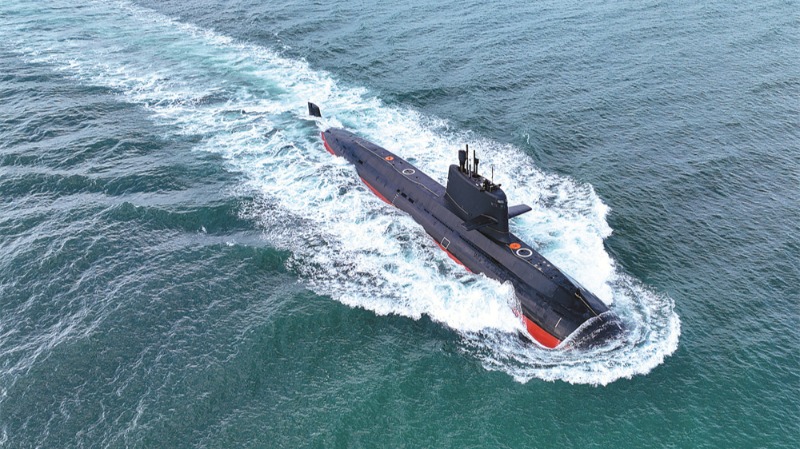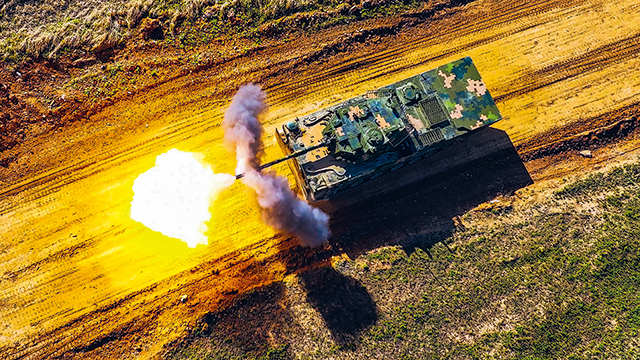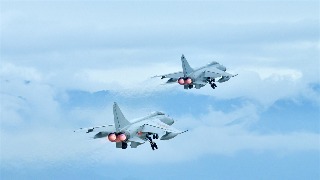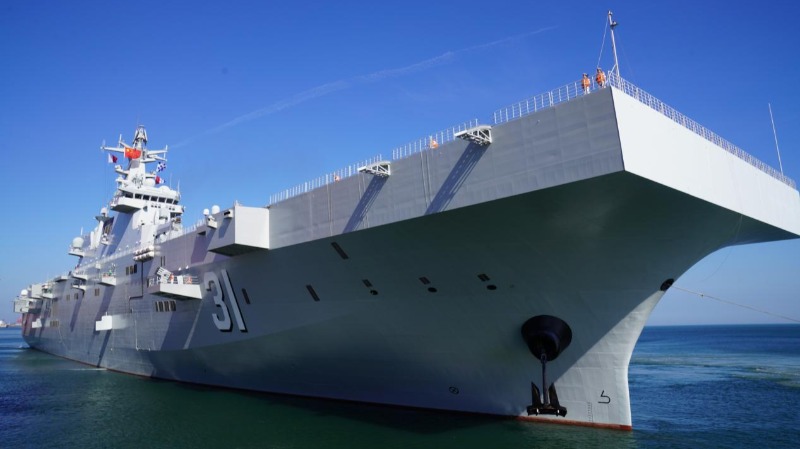By Duan Minfu
The situation in the Middle East has increasingly escalated in recent times. The US and the UK successively bombed targets of the Yemen Houthi armed forces in retaliation for their attacks on cargo ships in the Red Sea. Iran launched cross-border missile assaults against hideouts of terrorist organizations in Pakistan and other countries as well as Israeli intelligence agencies in Syria, causing discontent among neighboring countries. Persistent fighting between Israel and the Lebanese Hizballah and the assassination of Hizballah's top commander have aggravated tensions between the two sides.
Analysts pointed out that the US' military strikes against the Houthis will only make the Red Sea navigation issue more difficult to resolve. Tensions between Iran and neighboring countries have intensified regional instability. The conflict between Israel and Hizballah may be protracted. All these reflect that the spillover effects of the Palestinian-Israeli conflict are constantly proliferating.
According to the Al-Masirah TV controlled by the Yemen Houthi armed forces, the US and the UK launched air strikes against multiple Houthi targets in northern and central Yemen, including several locations in Al Hudaydah, Taiz, Dhamar, Al Bayda and Saada provinces on the early morning of January 18.
Since the outbreak of the current round of Palestinian-Israeli conflict, the Yemen Houthi armed forces have frequently attacked ships relevant to Israel and the US in the Red Sea to show their support for Palestine. The US and the UK have fought back by launching air strikes against Houthi targets since January 12, and the US government also announced to re-designates the Houthis into the Specially Designated Global Terrorists on January 17 to pressure the Houthis.
Jake Sullivan, the National Security Advisor to President Biden, said in a statement that the US move will further restrict the Houthis' access to financial markets and hold them accountable for their attacks on commercial vessels in the Red Sea and Gulf of Aden. If the Houthis cease their assaults, the US will immediately reevaluate this decision.
However, analysts indicated that the US counterattack not only fails to exert pressure on the Houthis effectively but also risks escalating the situation further. To solve the Red Sea navigation security issue, the most important thing is to facilitate a ceasefire between Palestine and Israel at an early date.
Affected by the Palestinian-Israeli conflict, the instability in the Middle East and surrounding regions has deteriorated these days. Iran recently launched missile strikes on the targets in Syria, Iraq and Pakistan that are perceived to threaten Iran's security , as well as Israeli intelligence agencies, provoking strong resentment among the countries involved.
The Iraqi Ministry of Foreign Affairs issued a statement on January 16 condemning the Iranian attack as a flagrant violation of Iraq's sovereignty. The Iraqi government later recalled its ambassador to Iran and filed a complaint with the United Nations over the attack. Pakistan Ministry of Foreign Affairs announced on January 17 to summon its ambassador to Iran and declared on January 18 to have carried out precision military strikes against terrorists in Iran.
Analysts pointed out that Iran's cross-border strikes in these consecutive days are mainly owing to the sharp deterioration of the security situation in the Middle East after the outbreak of the new round of Palestinian-Israeli conflict. Having suffered from bombing attacks from the extremist group Islamic State (IS) the other day, the series of attacks by Iran aim at demonstrating its strong determination to safeguard national security and retaliate against hostile actions.
After the new round of Palestinian-Israeli conflict broke out, Israel has been engaged in ongoing firefights with the Lebanese Hizballah that supports the Palestinian Islamic Resistance Movement (Hamas) in the northern areas. Since the beginning of this month, Israel has killed several senior leaders or commanders of Hamas and Hizballah.
Analysts commented that the levels of the killed commanders indicate the increasingly escalating military conflict between Israel and Hizballah. The purpose of Israel's precise elimination of Hizballah's senior leaders by leveraging its intelligence and technological advantages is to facilitate its military operations in the Gaza Strip and rebuild its intelligence deterrence. Hizballah made retaliative response to the moves of Israel, including drone attacks on the headquarters of the Israeli Northern Command. Hizballah will not give in confronting Israel's precision strikes.




















